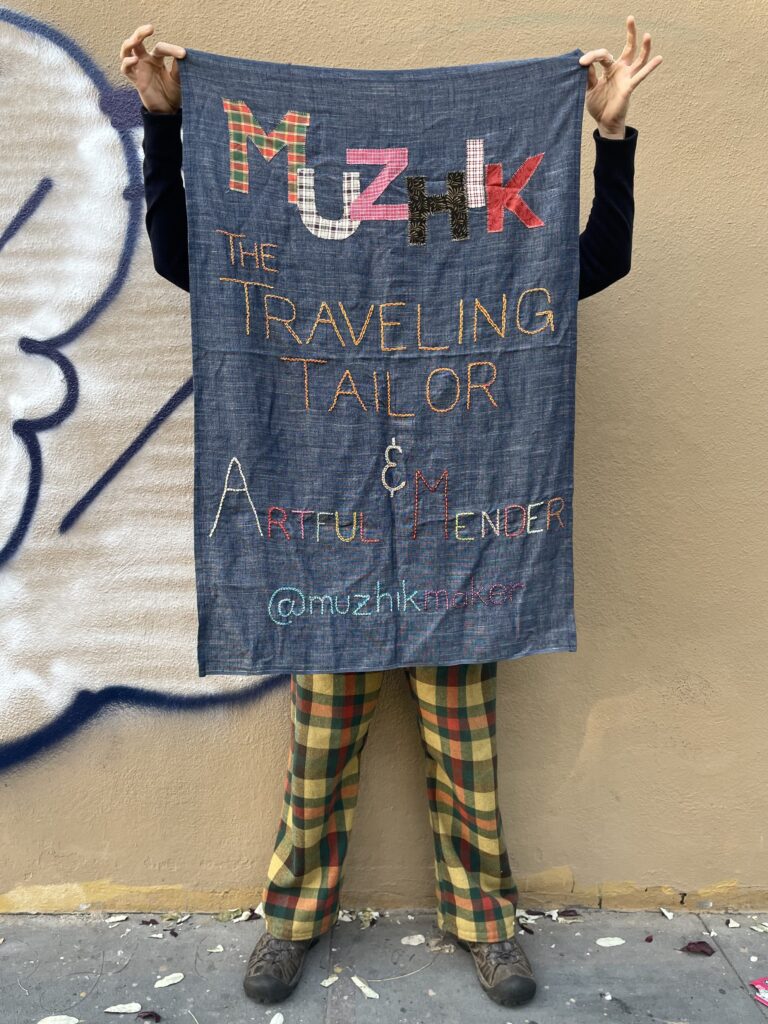
In any classic Russian novel, the first character is Russia. The second is time. The third is the muzhik.
But why name a business Muzhik? Just what is a muzhik?
Well, literally, a peasant. A yokel, a rube, a bumpkin, like the nameless toiling rustics of Tolstoy. Throughout the novel ‘Anna Karenina’, the muzhik is always there in the background – cutting hay, mending rails, darning socks, patching coats – carrying out every manner of small and necessary task that bears the world forever forward. The muzhiks are the laborers of the landowner Levin’s farm (“since the spring of that year he had made a plan for himself – to spend whole days mowing with the muzhiks”). A muzhik tsks into his beard and busies himself with track maintenance just after Anna throws herself beneath a locomotive in the novel’s harrowing climax (“a little muzhik, muttering to himself, was working over some iron.”)
But unlike more western peasantry, the muzhik is no mere literary or historic artifact. Even today, the casual Muscovite, whilst stuck in a snowbank and calling for help, or greeting a friend not seen in some while, will salute with a cry of ‘Muzhik!’ the way an American might say ‘Bro!’
So when considering what to call my own business, there was only one sensible name.
But…I am not Russian. And I don’t speak a word of it beyond ‘yes’ ‘no’ ‘please’ ‘thank you’ and one extremely slimy descriptor for a feature of anatomy, none of which suggest themselves as suitable, let alone reputable, names for a business. But I’m a bit of a Russophile – for the classic stuff, anyway, for Chekhov, Tchaikovsky, steam engines, samovars, sledges on a snowy steppe – and admire the muzhik sensibility.
I have often described myself as an urban peasant, in that I lead a life of active quiet despite living in a large and densely peopled metro area. Still I make my own clothes, grow my own food, cut my own hair, and bite my own nails. I have brewed both sauerkraut and kvass. But to refer to myself, or a business as ‘The Urban Peasant’ or ‘The Peasant’ or some other variation (‘Le Paysan’, ‘Il Paisano’) all felt romantically misleading, as though I’d show up smelling of lavender and clutching a tambourine. Whereas Muzhik is hardier, less delicate, resilient and resourceful. The ineradicable weed that keeps sprouting from the sidewalk no matter how many times it’s been trodden, ripped up, or pissed on by dogs. Like someone nourished on porridge and disappointment. Like someone who’s been on rather intimate terms with a cabbage.
While the word does have a literal meaning and can be deployed equally as an insult for an ignorant provincial, or as an endearment for someone charmingly out of their depth, (Tsarina Alexandra called her husband ‘my muzhik’ when he spoke French with a heavy Russian accent) the true muzhik will grit their teeth and persevere, like the Soviet surgeon and muzhik extraordinaire Leonid Rogozov, who when stricken ill in Antarctica, successfully removed his own appendix. One might not expect much of a muzhik, which is what makes them so formidable.
And is perhaps why, more than anyone, the muzhik displays the Russian spirit of smekalka (смекалка) that is not genius, but ingenuity. A magnificent resourcefulness, despite a lack of resources. A muzhik can be relied upon to come up with a solution. A muzhik gets results.
Of course, a muzhik can also be unsophisticated. Rude even. But this isn’t misanthropy. A muzhik may be perfectly happy for the company of others, so long as it doesn’t interrupt the sewing, stitching, mending, patching, and the thousand other nameless things that need doing in a day. A muzhik understands societies’ terms, it is just that they prefer their own, and don’t care to dawdle on ceremony or useless convention when there is yet work to be done.
And so as a business name, it seemed apt. Muzhik, the traveling tailor and artful mender. Muzhik the resourceful. Muzhik the maker. Thoroughly modern muzhik. The name implies robustness, creativity, endurance, and the flexibility to do more than just one thing. Which is to say, to do whatever needs doing, as any muzhik must.
Besides, I do not smell of lavender. I don’t own a tambourine. I stitch. I patch. I repurpose, I repair, and I repeat. A peasant? Nyet. I am Muzhik.